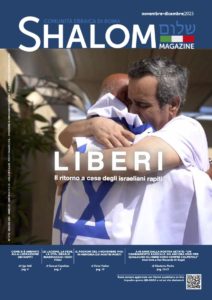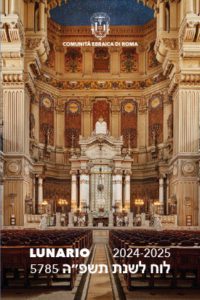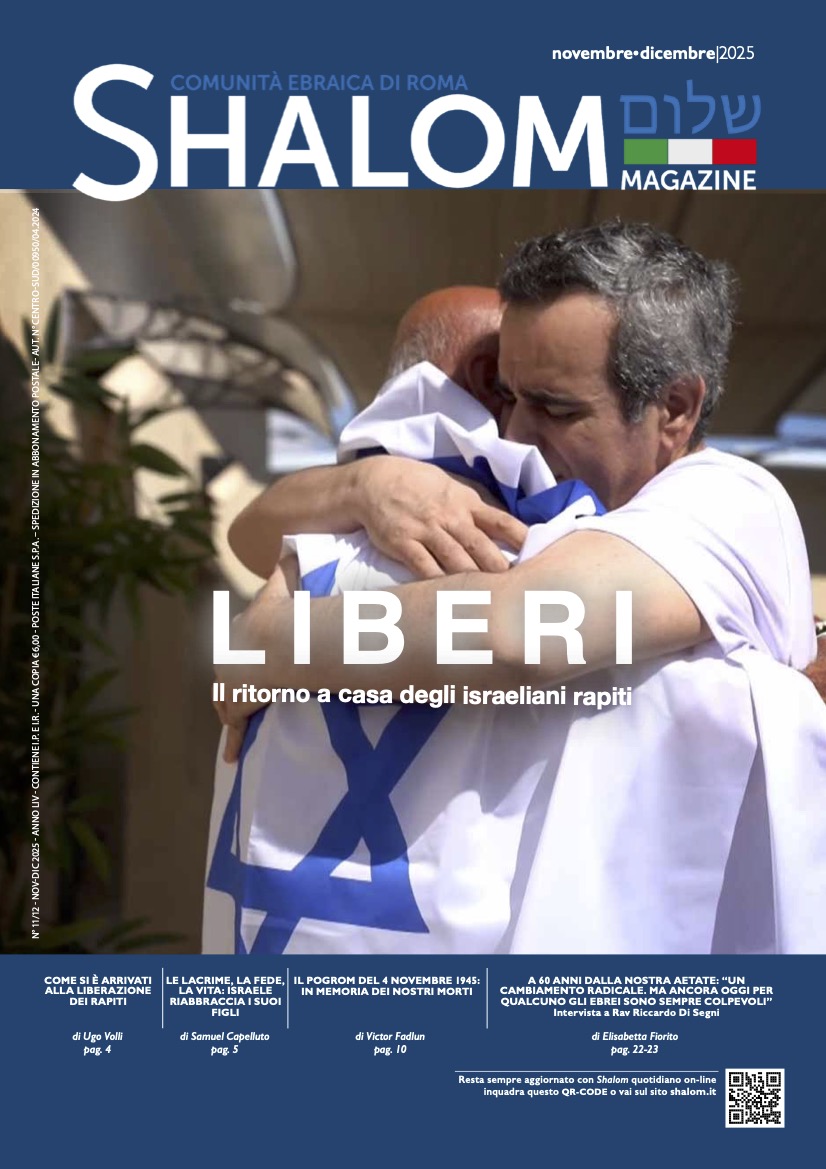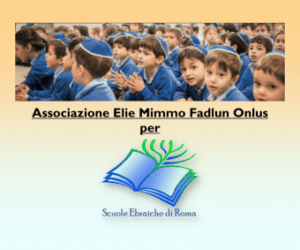
It was Shabbat, the holiest day of the week; a day in which Jews enjoy their families, pray and take time for introspection. It was also the third day of sukkot, the joyful Jewish festivity of “huts”, a holiday children love and adults prepare with care and devotion. On the 16th of October 1943 at 5.15 in the morning 365 German security and Italian police forces sealed off the Ghetto, which held a large part of the Jewish community, turning it into a virtual prison. Theodor Dannecker, chief of the Judenreferat in Italy and tasked with implementing the Final Solution, the genocide of the Jews in Italy, had ordered to clear the area. The Gestapo pounded on Jewish families’ doors and captured men, women and children sending them off to concentration camps to be eliminated. While some managed to hide and escape on roof tops, 1,024 Jews were taken that day and deported to Auschwitz two days later. Only 16 of them ever returned.
A few months before, on the morning of September 26, Herbert Kappler, SS Lieutenant Colonel Commander of the Gestapo in Rome, summoned the president of Rome’s Jewish Community, Ugo Foà, together with the Italian president of the Jewish community, Dante Almansi, to his headquarters. Kappler informed that the Jews were a problem but he wasn’t interested in taking their lives, nor those of their children, he was only interested in their gold and gave them an ultimatum. 50kg of gold had to be delivered to his office within 36 hours or he would have started the process of deportation of the Jews. The Jewish community was faced with death and immediately started to raise the amount that was requested to save their lives. Jews and even some Catholic friends streamed into the city’s synagogues to hand over whatever gold they could spare: jewellery, watches, coins, and many objects that had huge sentimental values. In an incredible effort to save the Jewish community the presidents managed to collect 80 kg of gold, 50 were delivered to Kappler and 30 were hidden and later used to finance the birth of the State of Israel.
Despite the good faith that Jews had in that ultimatum, Kappler implemented orders for the Final Solution anyways and on the 16th of October the Raid took place. They had been betrayed in the most cowardly way.
Every year this date is commemorated in Rome with various institutional events. One of them is a silent march through the very same streets where Jews were gathered and deported. The only thing to be heard is the names of the victims read out loud through a megaphone. A wall plaque in Via Portico d’Ottavia commemorates “qui ebbe inizio la spietata caccia agli ebrei”: this is where the merciless hunting down of the Jews began.
In participating to the commemoration of the many lives that were lost and families hurt on the 16th of October 1943, 92-year-old Emanuele Di Porto tells us, in an interview, about his incredible experience as a child who lived that day and will never forget it
How was your life before the 16th of October 1943 when the German Raid of the Ghetto of Rome took place?
We didn’t have much, we lived in a flat in the Jewish ghetto, together with my two aunts and their families: 20 people in one apartment. Today I live in that same place, by myself.
My father was a peddler, he used to sell postcards. I had to help my family, I started working very early in my childhood. I used to sell second-hand clothes door to door in the Monti area. I still remember my most successful deal as a little boy: I earned 30 liras selling a jacket given to me by a lady for 10 liras. It belonged to her dead husband. I sold it for 40 liras. 28 I gave to my mother, and 2 I kept. I was seven years old. One lira I spent to go to the cinema and another one to buy an ice cream.
What happened to your family on that infamous day, on the 16th October 1943?
The afternoon before the 16th of October, my mother took all six of us children to the cinema, then we had dinner and went to sleep. My father got up at 3 in the morning, as he always did, to go to Termini train station where he sold his postcards. At 5 in the morning, my mother heard some commotion in the streets, we lived right in the heart of the ghetto, and saw German soldiers rounding up people to take them away. She thought they were taking only men so she ran to the train station and warned my dad to stay away from the ghetto. They agreed she would come back home to get us children and meet in Testaccio, a safer area, where my mother’s sister lived.
Unfortunately, on her way back, as she was steps away from home, she was taken by the Germans and loaded on a truck. I saw it all from our window, so I ran downstairs and started screaming for her, she told me to go away in Judeo-Roman dialect but I couldn’t leave her. One of the soldiers grabbed me and put me on the truck with her. I don’t know how, but she convinced him I wasn’t Jewish and that she didn’t know me. She saved me. That was the last time I saw her. The last words I heard from her.
And what did you do then?
I kept on walking and saw other trucks loading Jews, I was terrified. I arrived to Piazza Monte Savello and got on a Tram. I was 12 years old. The ticket collector saw me and I instinctively said: “I’m a Jew and the Germans are looking for me” he told me to stay next to him, he shared his lunch with me and when his shift was over, he told his colleague to take care of me. I stayed on that cable bus for 2 days, until a friend of my father’s saw me and said my dad thought I was taken away by the Germans, I had to hurry up and join him in Borgo Pio in my cousin’s house. There, I found my father, my brothers and sisters.
My father cried when he saw me. After two days we moved back to our house in the ghetto and stayed there. My dad became depressed and couldn’t work. My older brother had some health issues, so I became the provider of the house.
I always say that I never was a child and I will never be old.
Did you ever see the ticket collector, who helped you on the tram, again?
No, I never saw him again. He wasn’t a ticket collector; he was an angel.
Did you ever feel anger in relation to this experience?
I just had to move on and survive. I didn’t have time to dwell on my feelings.
Once, the Fascists came to our house. I hid under the bed, my sister saw me and slipped two golden necklaces in case they took them away and I would need money. When I came out, my family was gone. I stayed 6 hours by myself holding the two necklaces, waiting. I was about to give up when I saw my dear ones coming back: probably the fascist soldiers had some kind of second thoughts, but they took my uncle who died in the concentration camps. Every day was about surviving.
If you could say something to your mother, what would you tell her?
I would tell her that I love her very much and that I know she felt my love and still feels it.
What is your attitude towards your religion?
I have always believed in God and I am attached to Judaism. I never stopped believing and still do today. I am 92 years old and God saved me many times.
In the morning of the 4th of June when the allies entered Rome, we all took the streets and rejoiced. I went to Piazza Venezia and I started screaming “I am a Jew” below Mussolini’s balcony. I wasn’t going to hide again, I could be a Jew without fear.
Did something change inside of you, after you took part in the Remembrance Journey to Auschwitz- Birkenau and saw where your mother died?
I don’t linger too much on emotions. My life was a lot about surviving. I then also had a good life: I built a family, had a successful career as a tour guide and achieved economic stability. When I went to see the concentration camps on the Remembrance journey in 2016, I was 85. I expected to see a horrible place and that’s exactly what it was. We prayed for my mother and that was important. I don’t like to feel sadness, I try to move on.
















